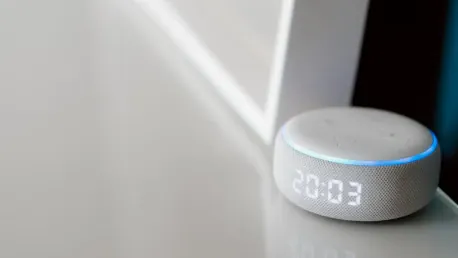The advent of smart home technologies is transforming the way seniors live independently, offering a blend of safety, convenience, and enhanced quality of life. By addressing the unique needs of older adults, these innovations ensure they can maintain their independence while enjoying a comfortable and secure living environment. With the integration of smart devices and systems, seniors can navigate their daily lives with greater ease and confidence, reducing stress for both themselves and their caregivers.
Enhancing Safety and Accident Prevention
One of the primary concerns for seniors living independently is safety, particularly the risk of home accidents. Smart home technology has made significant strides in this area, providing solutions that help prevent falls and other common hazards. Motion detectors, for instance, automatically activate lights when a person gets out of bed at night, reducing the risk of tripping or falling. Additionally, smart doorbells equipped with cameras allow seniors to see who is at their door without having to open it, thus enhancing their sense of security and control over their home environment.
Fall detection technology integrated into smart devices and wearables offers an extra layer of protection. These systems can detect when a fall has occurred and automatically alert emergency contacts or medical services, ensuring timely assistance. Unlike traditional “life alert” systems, these smart solutions are less intrusive and more seamlessly integrated into daily life. This integration of technology not only helps to prevent accidents but also provides peace of mind for seniors and their families.
The Role of Voice-Activated Assistants
Voice-activated assistants like Alexa, Google Assistant, and Siri have become invaluable tools for seniors, offering a range of practical functionalities. These devices can provide medication reminders, schedule appointments, and answer questions, all without the need for screens or typing. This is particularly beneficial for seniors with mobility or visual impairments, as they can interact with the technology using simple voice commands, making daily tasks more manageable and less physically demanding.
In addition to practical tasks, voice-activated assistants can help seniors stay connected with their loved ones. They can make phone calls, send messages, and even facilitate video calls, making it easier for seniors to maintain social connections and reduce feelings of isolation. The convenience and ease of use provided by voice-activated assistants not only enhance the quality of life for seniors but also support their emotional and social well-being by keeping them engaged with their social network.
Smart Temperature Control for Comfort
Maintaining a comfortable living environment is crucial for seniors, and smart thermostats offer a convenient solution. These devices allow users to control the temperature of their home using their phones or voice commands. Over time, smart thermostats learn the user’s habits and preferences, automatically adjusting the temperature to create an optimal living environment. This learning capability ensures that seniors’ homes remain comfortable without the need for constant manual adjustments, thus making daily life easier and more enjoyable.
This not only enhances comfort but also helps seniors save on energy costs. By learning when the home is typically occupied and adjusting the temperature accordingly, smart thermostats can reduce unnecessary heating or cooling, making the home more energy-efficient. For seniors on a fixed income, this energy-saving benefit can have a significant positive impact on their budget, allowing them to allocate resources toward other essential needs.
Intelligent Lighting Solutions
Proper lighting is essential for preventing accidents and reducing eye strain, and smart lighting systems offer both aesthetic and functional benefits. These systems can mimic natural daylight, adjust brightness levels for better sleep, and respond intelligently to the user’s needs. For example, lights can be programmed to gradually brighten in the morning, simulating a natural sunrise and making it easier for seniors to wake up. This ability to customize lighting to suit personal preferences greatly enhances the living experience.
Smart lighting can also be controlled remotely, allowing family members to ensure that their loved ones’ homes are well-lit and safe. This added layer of control and customization helps create a more comfortable and secure living environment for seniors. Whether adjusting lighting for specific activities or ensuring lights are turned off when not needed, smart lighting solutions provide a balance of safety, convenience, and cost-efficiency.
Entertainment and Connectivity Simplified
Staying entertained and connected is important for seniors’ mental and emotional well-being, and smart home technologies make this easier than ever. Smart TVs integrated with streaming apps provide a wide range of entertainment options without the need for complex remotes or cables. Seniors can enjoy their favorite shows, movies, and music with just a few simple commands, thus simplifying the process of accessing entertainment and making it more accessible.
Voice-activated music playlists and integrated gaming systems offer additional leisure activities, making staying indoors more enjoyable. Video calling systems built into smart displays help seniors stay connected with family and friends, reducing loneliness and fostering a sense of community. These innovative solutions ensure that seniors remain engaged, active, and socially connected, which is vital for their overall well-being.
Health Monitoring and Well-Being
Health monitoring has become an integral part of smart home ecosystems, with wearables that track vital signs such as heart rate, oxygen levels, and sleep quality. These devices often integrate with smart home systems to send notifications if something seems amiss, ensuring timely support from family members or caregivers. For seniors with chronic health conditions, these monitoring systems provide peace of mind and help manage their health more effectively by offering continuous health data tracking and alerting caregivers to potential issues.
By keeping track of important health metrics and alerting caregivers to potential issues, smart health monitoring devices play a crucial role in supporting seniors’ well-being. These devices can proactively address health concerns before they become emergencies, thus offering a proactive approach to health management. The continuous monitoring and timely alerts provided by these systems empower seniors to take charge of their health, fostering a greater sense of independence and security.
Kitchen Safety and Convenience
The kitchen can be a hazardous place for seniors, but smart appliances are making it safer and more convenient. Automatic shutoff stoves, for example, can prevent fires by turning off the heat if no activity is detected for a certain period. Refrigerators with alerts can notify users if the door is left open or if the temperature rises above a safe level, ensuring food safety and minimizing the risk of spoilage or accidents.
Voice-activated recipe guides and timers assist seniors with cooking, even if they have limited energy or dexterity. These smart kitchen solutions help seniors continue to enjoy meal preparation while minimizing the risks associated with cooking. By integrating these appliances and tools, the kitchen becomes a safer and more user-friendly space, enabling seniors to maintain their culinary independence and enjoy preparing meals without unnecessary risks.
Advanced Home Security Systems
The rise of smart home technologies is revolutionizing the way seniors maintain their independence, offering a mix of safety, convenience, and an improved quality of life. These advancements are particularly beneficial in addressing the unique needs of older adults, making it possible for them to remain self-sufficient while living in a comfortable and secure environment. With an array of smart devices and systems, daily activities become easier and more manageable for seniors, allowing them to navigate their routines with increased ease and confidence. These innovations also provide peace of mind and reduced stress for both elderly individuals and their caregivers.
For instance, smart home assistants like Alexa and Google Home can help seniors manage medication schedules, set reminders, and even make calls in case of emergencies. Motion sensors and cameras can detect unusual activities, alerting caregivers to any potential issues, thereby ensuring timely interventions. Additionally, smart thermostats, lighting, and home security systems can be controlled remotely, offering an added layer of safety and convenience.
In summary, smart home technologies are not just about modernizing living spaces; they are crucial tools that help seniors lead independent lives with greater safety, comfort, and dignity. These technologies are valuable assets in supporting the aging population, making it possible for them to thrive in their own homes while alleviating concerns for their loved ones.









